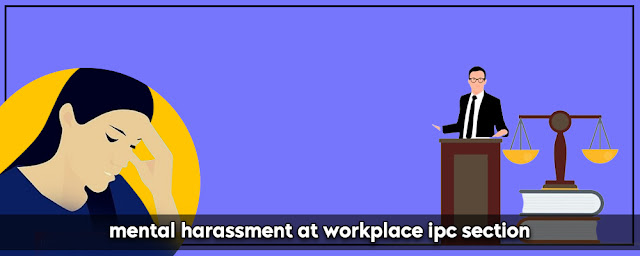Things To Know About A Legal Notice
When facing legal issues, one of the first steps taken by individuals or organizations is to send or receive a legal notice. A legal notice is a formal communication that serves as a crucial instrument in the legal world. Whether you are sending or receiving one, it's essential to understand its significance and implications.
Definition and Purpose of a Legal Notice
A legal notice is a written communication sent by one party to another to assert their legal rights, demand action, or provide information regarding a specific matter. It is commonly used to warn the recipient about potential legal consequences if they fail to comply with the demands stated in the notice.
According to Section 80 of the Civil Procedure Code of 1908, a legal notice may only be submitted in civil cases. Intimation is a legal document and as such contains the following information-
Specific information and evidence regarding the complaint will be the subject of the case.
The weeping party looks for alternatives or relief
An overview of the situation's facts and possible solutions.
Contents of a Legal Notice
The contents of a legal notice are crucial in asserting legal rights and demands effectively while ensuring compliance with applicable laws and regulations. They are -
Name and Address of the Sender- The legal notice should start with the sender's name, address, and contact details. This information is necessary to identify the party issuing the notice.
Date- Mentioning the date of issuance is important to establish the timeline of communication and adherence to any legal deadlines.
Name and Address of the Recipient- The legal notice must clearly state the name and address of the recipient - the person or entity against whom the claims or demands are being made.
Subject- A concise subject line should be included to indicate the purpose of the legal notice.
Introductory Paragraph- The notice should begin with a formal and polite introduction, clearly stating the intention of the notice. This can include expressing the sender's intent to resolve a dispute or seeking compliance with a contractual obligation.
Background and Description of the Issue- A detailed and factual description of the issue or dispute is essential. This section should include relevant facts, events, and any supporting evidence that establishes the validity of the claims made in the notice.
Legal Basis- The legal notice should explicitly state the legal basis for the claims or demands being made. This may involve citing specific laws, contractual provisions, or legal precedents that support the sender's position.
Demands or Relief Sought- The notice should clearly outline the specific demands or relief sought from the recipient. For example, it could be a request for payment of outstanding dues, cessation of a particular action, or the performance of contractual obligations.
Time Frame for Response- A reasonable time frame should be specified within which the recipient must respond to the notice or take appropriate actions to address the claims.
Consequences of Non-Compliance- To emphasize the seriousness of the matter, the legal notice should clearly communicate the potential legal consequences if the recipient fails to respond or comply.
Signature- The legal notice must be signed by the sender or their authorized representative to validate its authenticity and formalize the communication.
Annexures- If there are any supporting documents or evidence relevant to the dispute, they should be annexed to the legal notice. These could include copies of contracts, invoices, receipts, or any other pertinent records to strengthen the claims made.
Seeking Legal Assistance
Drafting a legal notice requires a thorough understanding of the law and the legal process. It is advisable to seek assistance from a qualified lawyer to ensure that the notice is accurate, properly worded, and legally binding. An experienced lawyer can also advise on the appropriate course of action based on the nature of the dispute and the applicable laws.
You will need the help of lawyers to draft your Legal notice. The legal notice by the advocate includes asserting the client's rights, stating the issue, demands, and potential legal action if the recipient fails to comply. Similarly, the lawyers also help their clients in drafting the Legal notice in Hindi. The lawyer's notice warns the clients of the legal consequences if the recipient fails to respond appropriately.
One can talk to a lawyer through Lead India for any type of legal advice. In India, free legal advice online is accessible through Lead India. Along with obtaining free legal advice online, you can also ask questions to experts online free at Lead India.
SOURCE:-
Visit us: — https://www.leadindia.law
Call Us: +91–8800788535
Email: care@leadindia.law
YouTube: — https://www.youtube.com/c/LeadIndiaLawAssociates
Facebook: — https://www.facebook.com/leadindialaw
LinkedIn: — https://www.linkedin.com/company/76353439
Twitter: — https://twitter.com/leadindialaw
Pinterest: — https://in.pinterest.com/lawleadindia
Instagram: - https://www.instagram.com/leadindialawofficial
Read Also:-
How Can I Find A Solution For My Cheque Bounce Case?
Find Power Of Attorney Consultants In Your City




Comments
Post a Comment